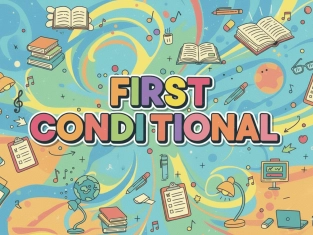Zero Conditional
Table of Contents
Exercises
Explanation
Zero Conditional – facts, habits, and truths
Structure
|
If-clause |
Main clause |
|
If + Present Simple |
Present Simple |
Example:
If you touch fire, it burns.
Both parts of the sentence are in the Present Simple tense.
Examples
-
If you mix red and white, you get pink.
-
If it snows, the roads become slippery.
-
If people don’t sleep enough, they feel tired.
-
If I drink coffee late, I can’t sleep.
-
If dogs hear a noise, they bark.
When Do We Use the Zero Conditional?
1. Facts and Science
-
If the sun goes down, it gets dark.
-
If you boil water, it turns into steam.
2. Daily Routines and Habits
-
If I have time in the morning, I read the news.
-
If we go to the gym, we feel better.
3. Rules and Instructions
-
If the light is green, you can cross the street.
-
If you open this app, the video starts playing.
Other Words Instead of if
|
Word |
Meaning |
Example |
|
when |
every time |
When it rains, I stay at home. |
|
whenever |
each time |
Whenever I see Anna, she smiles. |
|
unless |
if not |
Unless you study, you don’t improve. |
|
as soon as |
immediately after |
As soon as class ends, students leave. |
In short
Use the Zero Conditional for facts, routines, and things that never change.
It shows what always happens when one thing happens.
Example:
If you exercise every day, you stay healthy.

